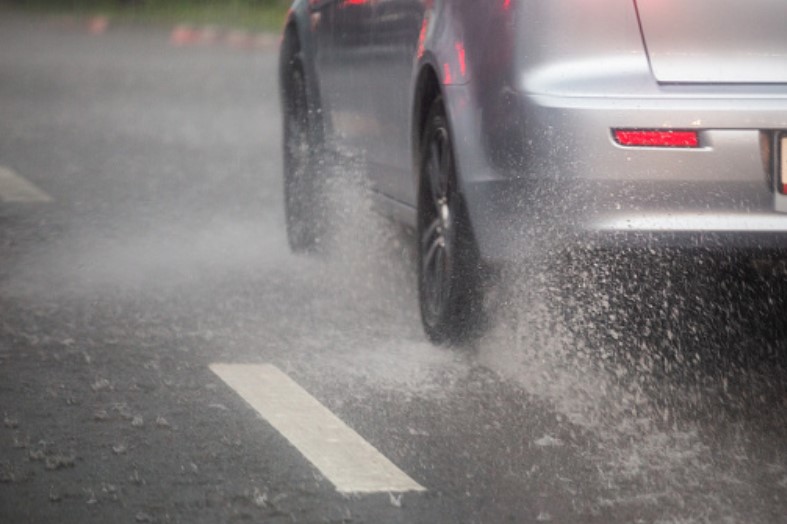Driving Tips to Avoid an Accident in Rainy Weather
November 15, 2022
While Florida is known as the Sunshine State, it’s also known for unpredictable weather and pop-up thunderstorms. If you live in or visit Florida, being prepared for driving in the rain is a must.
Roads are much more dangerous when it rains. Because of this, you need to utilize the tips here to avoid being in or causing an accident.
Prepare Your Vehicle for Rainy Weather
Driving on dry roads when it is sunny out allows you to see where you are going easily and makes it easy for other drivers to see you. You can also stop as needed and avoid crashing into another vehicle or something on the road.
Wet roads and heavy rain add challenges that your vehicle needs to be able to meet to keep you and others safe from harm.
Some of the things you should check on your vehicle before driving in the rain include:
Windshield Wipers
Make sure they are working properly. If the blades are worn, replace them. Signs they are worn include streaks on your windshield and if they don’t remove water. Be sure to replace the rear wiper blade, too.
Brakes
Make sure you schedule regular maintenance for your vehicle’s brakes. You can feel confident that your vehicle will stop when it rains by having them inspected and replaced as needed.
Lights
Most drivers think about their headlights when it is dark outside. However, they are also necessary if you drive in heavy rain during the day. Your vehicle’s headlights and taillights make your vehicle easily seen by others. This is particularly important when it is raining.
Tire Tread
Worn tires need to be replaced. Being able to steer and stop depends on traction, which can be affected if your tread depth is not sufficient. All tires have a wear indicator that lets you know when new tires are needed.
Tire Pressure
Under or over-inflated tires can impact your steering in any weather conditions. Make sure you check the tire pressure routinely.
It’s also smart to keep a flashlight and spare batteries, reflectors, road flares, and rain gear in your vehicle in case of an emergency.
Rainy Day Driving Tips
Before driving, it’s smart to check weather reports and traffic reports to learn about road flooding, congestion, or other issues that may result in a delay. Leave as early as possible to ensure you have extra time to get where you need to go and avoid putting yourself or others in a dangerous situation.
When driving in the rain, you should ensure you accommodate the adverse conditions. Some of the tips that will help you do this include the following:
Adjust Your Speed
When you drive on wet roads, you usually can’t drive safely at the posted speed limit. When you are driving in rainy or wet conditions, you must account for longer stopping distances to ensure you can maintain control of your vehicle. If you slow down, you have more time to react in unexpected situations, too.
Keep Your Headlights On
Headlights will increase the ability for other drivers to see you. In fact, in Florida, it is required by law to have your headlights on when it is raining.
Travel at a Safe Distance from Other Vehicles
You must maintain more distance between you and other vehicles when it rains. This ensures you have plenty of time to react.
Handling Rain-Related Accidents
If you are in an accident with someone who was not driving safely in the rain, you have rights. A Florida auto accident lawyer can help ensure you receive the compensation you are entitled to. Contact an attorney immediately for help with your case.
Related Posts
- Discover A Lawyer, Law Agency, Or Lawyer In Your Area Online With Lawcore.com
- Cincinnati Law Agency Directory, Attorneys, Attorneys
- Cincinnati Law Firm Listing, Attorneys, Lawyers
- Discover A Lawyer, Regulation Firm, Or Lawyer In Your Space Online With Lawcore.com
- Discover A Solicitor — Queensland Law Society
